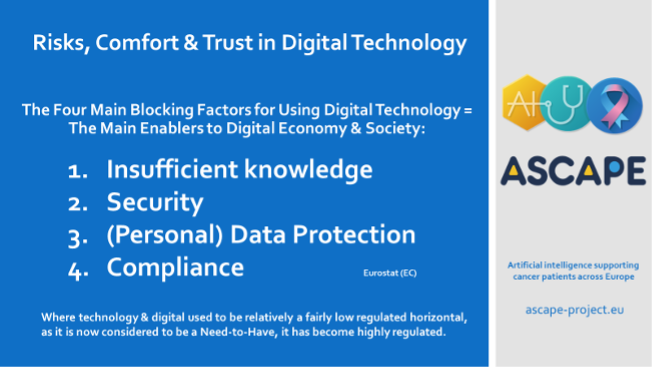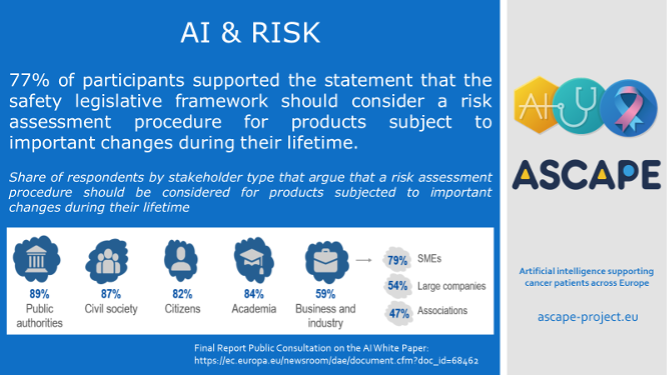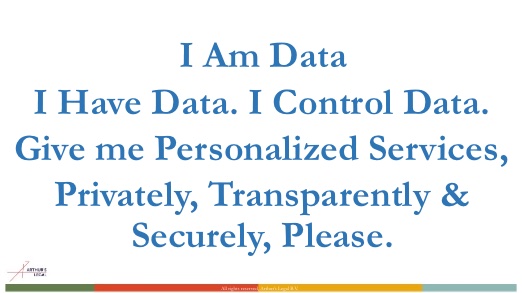Sense & Sensibility In Health, Care & Cure, in this Digital Age
Sensible Healthy Living
Humans are quite resilient. Sometimes, however, one may need some help.
One of the essentials for resiliency is healthy living, also when one feels ill, has gone sick, recovered, or otherwise needs care and other support to retain or improve towards a decent level of quality of life, in every phase of life. Health, wellness, prevention, care, cure and post-cure care go hand in hand.
Can these be improved with the capabilities of this Digital Age? If so; what makes sense, what does not, and how to stay fully aligned with human values? This, as it is all about improving the quality of life of people and society in general, and individuals in particular
No(n)-Sense?
In the last decades quite a few have been focusing on the letters e- or m- before healthcare; e-health, m-health, and other attempts to introduce technology as the silver bullet in health, care, and cure domains.
This technology-centered approach has proven not to be very successful. We believe that the reason is quite clear; the focal point is totally off-topic. Trying to improve quality of life is something else than trying to push as many devices, systems, and digital services as possible. Focusing on technology alone makes no sense whatsoever.
The various domains of healthy living do not only concern an abstract human being or treatment protocol. It concerns real individuals, each with its own backgrounds, dreams, particularities and ethics. Each individual will have many personas during their life; regarding healthy living, it can be young, middle-aged or older, professional or amateur sporter, an injured one, a short term or longer term patient, or somebody else that needs special care or other attention for a period of time that differs per individual and per relevant (complex of) personas. Healthy living is personal.
Trust Anchors
However, healthy living is not merely about such a persona. It’s also about the many professional caregivers (social, home and other), physicians, doctors, hospitals, health service providers, home care insurance companies, policymakers, agencies and authorities as well as friends and families of the individual, and society at large. These diverse groups of stakeholders are – or should be – trust anchors for any individual that needs care, cure or post-cure care.
The multi-stakeholder-centric approach should also be taken when considering and implementing any capabilities of this Digital Age in the essential yet complex healthy living domain. Such as, for instance, the processing of digital data.
This, also as these individuals are vulnerable when that they need care, support, and attention. For once, as per their particular health situation but also as per lack of sufficient knowledge and the lower ability (and willingness) to process information in a normal, rational way. They need continuous support by professionals, including professionals in the interdisciplinary convergence of health, data & digital.
Ethical Dilemma
As an example, let’s consider any wearable connected to the internet in some way.
This is one of the reasons why the European project ASCAPE has received funding to work on the above-mentioned interdisciplinary human-centric approach, in particular, to explore where and how certain digital capabilities can support cancer patients and improve their quality of life.

The connected device and related software-converted algorithms (including certain artificial intelligence) could help monitor certain health properties of an individual, for instance by sensing and processing those and digitally sharing these with its health professional. Do you believe that such vulnerable individuals can freely give consent for measuring and data sharing? Does such a person have a genuine choice to withhold it? How can it independently balance out short and long health impacts and short- and long-term privacy impacts?
Under the GDPR ‘consent’ by an individual means any ‘freely given, specific, informed and unambiguous indication of the data subject’s wishes by which he or she, by a statement or by a clear affirmative action, signifies agreement to the processing of personal data relating to him or her’. Consent should cover each of the processing activities carried out, per purpose. For consent to be informed, the data subject should be at least aware of the identity of the data controller and the purposes of the processing for which the personal data are intended.
So, what would be your human-centric ethical call in this example? Who would you need to help out with giving well-informed advice to such individuals within your professional ethical conduct?
Updated Multi-stakeholders Spectrum
It is clear that adding an updated multi-stakeholders spectrum as additional trust anchors to the interdisciplinary human-centric approach is a prerequisite. Doing so in a technology-neutral and technology-agnostic way is preferred. We believe that this is the only way to make any digitalization in the healthy living domains a success.
But, where to practically start from this perspective of interdisciplinary human-centricity? We believe it starts with transparency in general, and with that with awareness in particular.
Trust starts with Awareness
Trust is not a five-letter word. It is remarkable how little ‘trust’ has been researched, written, and clarified, where there are quite a lot of dimensions and nuances of trust. Although not the only approach, for this article we would like to highlight the following five phases towards trust, acknowledging that trust equals consistency over time so can be quite dynamic:
- Awareness: To become aware to be able to build and achieve the appropriate level of trust is obvious, but not that easy. Have insufficient knowledge is generally seen as a blocking factor that is even more essential than concerns about security, privacy or compliance. Insufficient knowledge for instance means a lack of access to relevant information and the lack of clarity and readability of supplied information. The phase of becoming (more and more) aware is a continuous one.

Digital economy & society enablers - Understanding: Understanding may follow during or after one has become aware. Having things explained does not mean one understands. So, there is a clear distinction between explanation and understanding.

AI & perceived risks
- Appreciation: If one understands, it could mean that one has a certain level of appreciation, which would be of course the result of multiple considerations, including benefits, risks, impact and risk appetite.
- Adoption: As mentioned, trust means consistency over time so the fact that one starts to adopt certain capabilities in the Digital Age does not yet mean the appropriate level of trust has already been met – and will continue to be met –.
- Acceptance: The same goes for the acceptance phase, but in this phase, the individual has chosen to trust it.
I Am Data, Therefore I Am
Trust can be catered for in many ways, including by demonstrating trustworthiness and accountability, both before, during, and after deployment and use of any device, system, or digital service. In this Digital Age, however, one should not forget that human-centricity also means that one needs to have a data-centric perspective at the core of each consideration, especially in the Healthy Living domain.
This, if one treats the individuals as mere data points, trust will not even start to build; let alone take up and scale-up of any digitally-enhanced capability.
When thinking about personal data, it is quite simple. It’s personal. It’s only provided to be processed and protected by accountable custodians, for a single, clear purpose only.
If we are able to create, build, nurture and cater for such interdisciplinary human-centric, transparent and trustworthy digital means, as an aid for individuals in Health Living that respect and protect the human values of each person – including but not limited to privacy, security, safety, and accountability –, we have a global market of almost 8 billion individuals that we can help to improve their quality of life.

Healthy Living that Makes Sense is a Team Sport
Projects such as ASCAPE explore these success factors in real-life pilots in multiple countries; what does make sense, and what is sensible, in which situation and context, et cetera. It is crucial that all stakeholders involved will be able to trust the relevant digital capabilities, including devices, data, algorithms, software, digital ecosystems, and services. Awareness, understanding, appreciation, adoption, and acceptance are also essential for such stakeholders to work on.
If we as interdisciplinary team players achieve the appropriate level of trust and trustworthiness – the level where things really start to make sense –, it will not only help the particular individual but meanwhile and after also the health professionals to provide better care, cure, and post-cure care to other individuals. It’s truly a team sport.
October 2021. Blog by Arthur’s Legal, Strategies & Systems ![]()